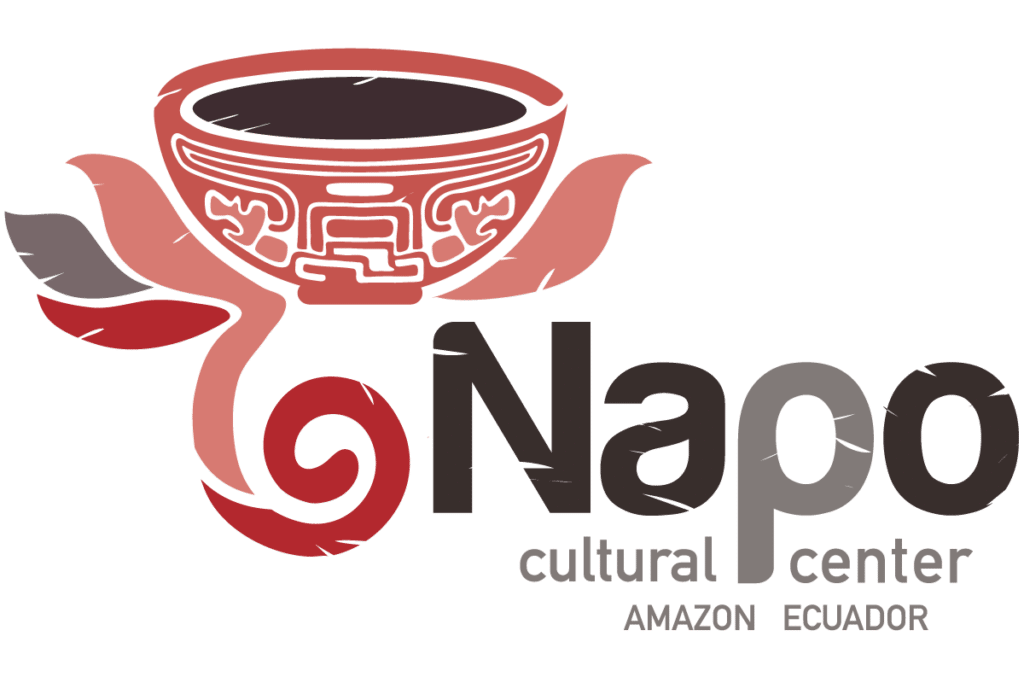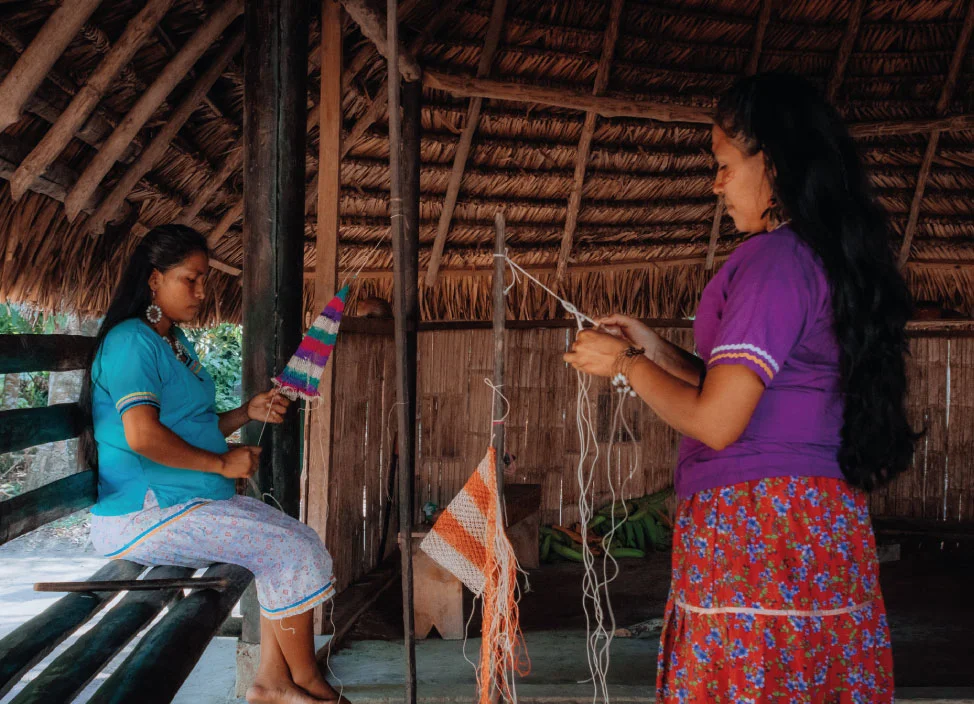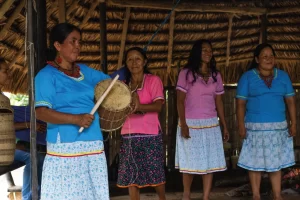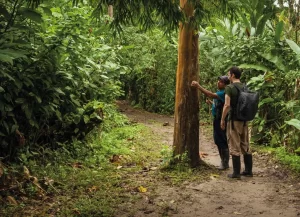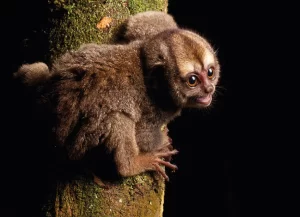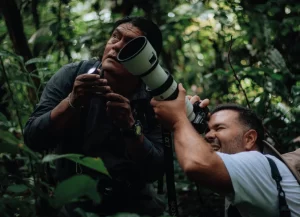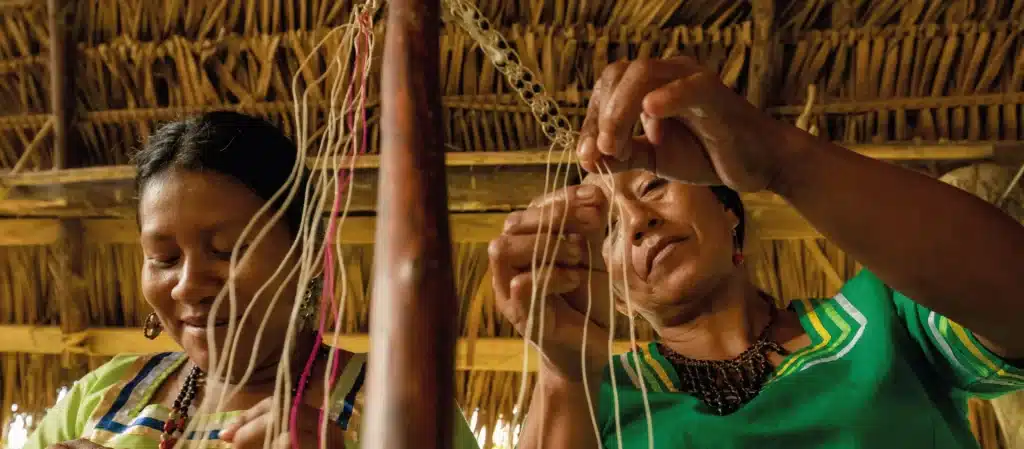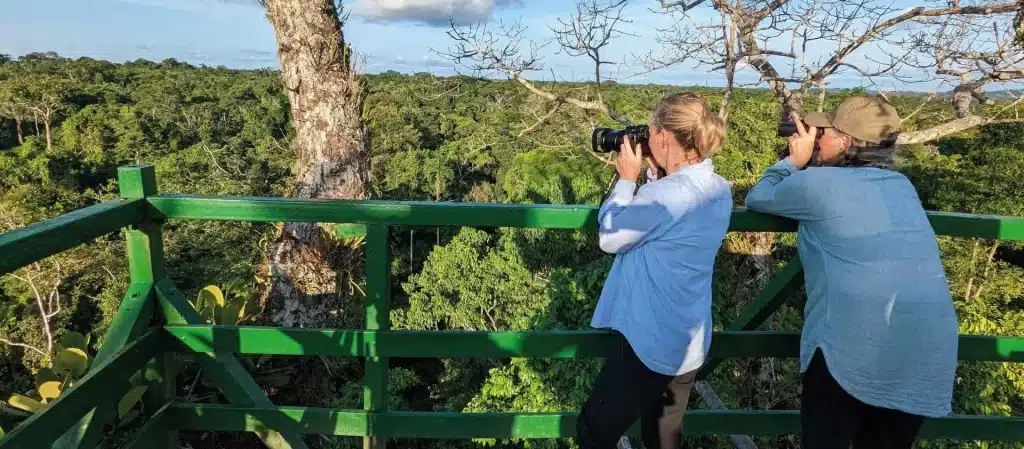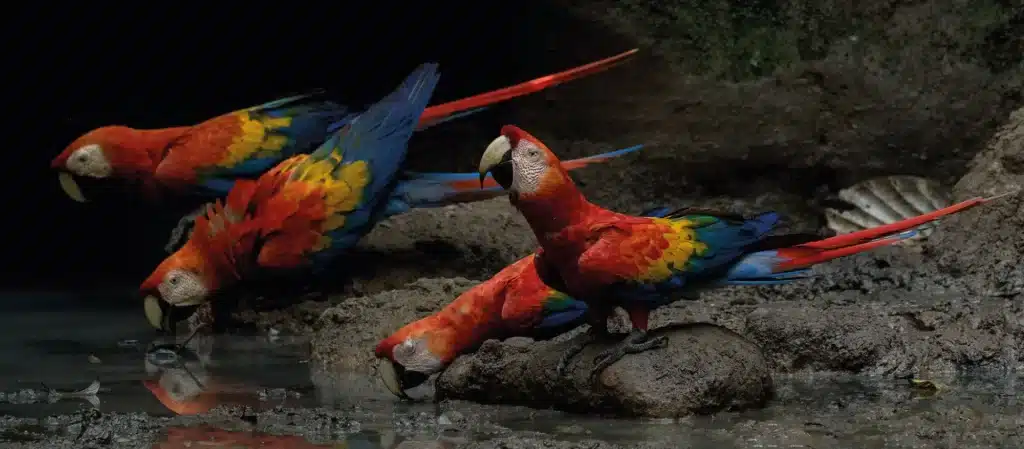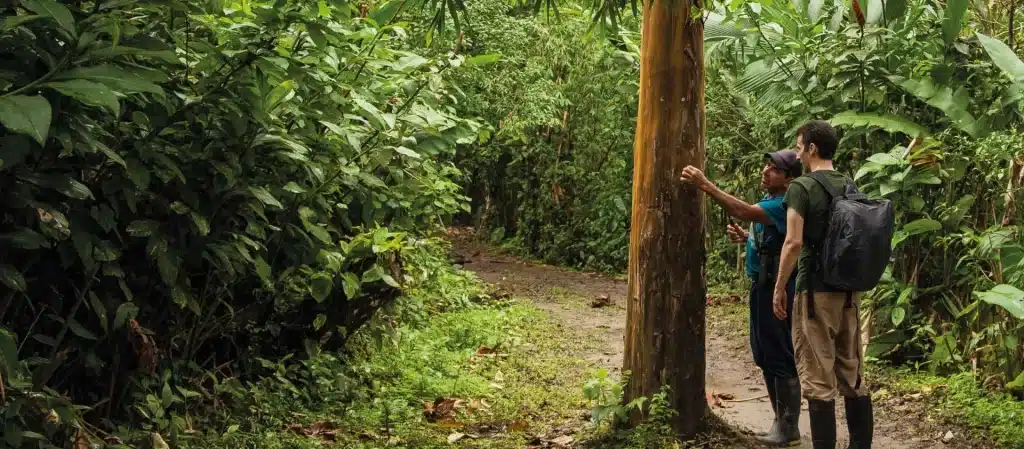Introduction:
In the heart of the Ecuadorian Amazon, within the majestic Yasuní National Park, lies the Kichwa Añangu community, an indigenous people who have kept their traditions and close relationship with nature alive for centuries. However, today, Kichwa Añangu women are undergoing a significant transformation: they are claiming their place, empowering themselves, and taking a leading role in the conservation of their culture and the well-being of their community. In this article, we explore the power of female empowerment in the Kichwa Añangu community and how this process is not only changing the lives of women but also the destiny of the entire community.
1. The Strength of Kichwa Añangu Women: A Pillar in the Community
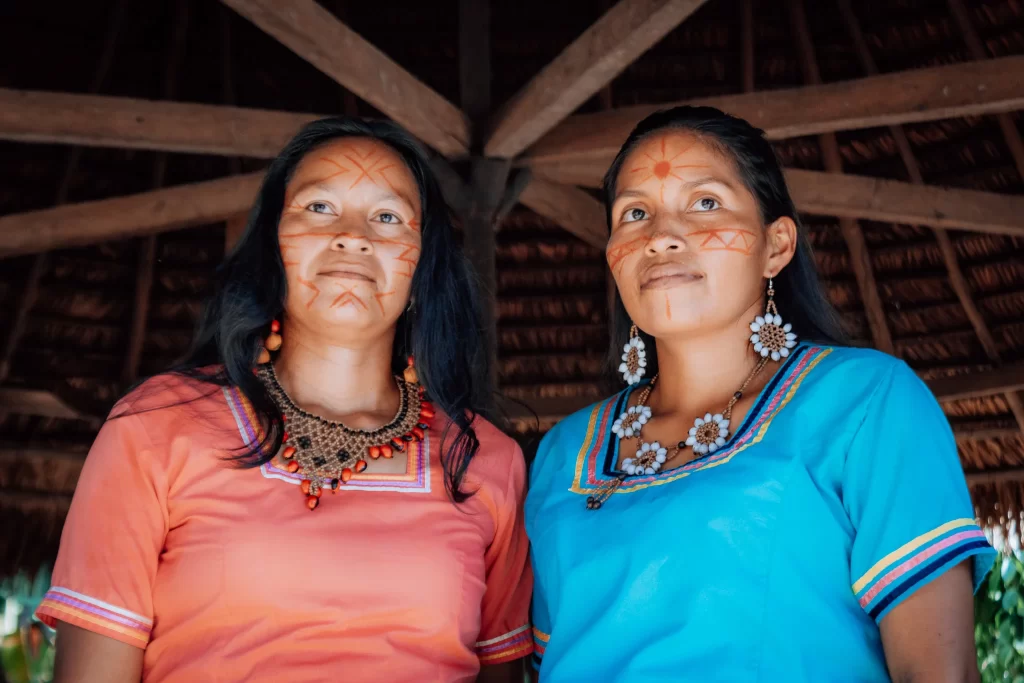
Historically, women in indigenous communities like the Kichwa Añangu have played an essential role in daily life, from agriculture to the transmission of oral traditions and child-rearing. However, their contributions have often not been fully recognized. Today, Kichwa women are claiming a more active role in all aspects of community life.
Indigenous women of Añangu are leading conservation and sustainable tourism initiatives, demonstrating that gender equality not only improves the quality of life for women but also has a direct impact on the sustainability of the natural environment that everyone values. This change is possible thanks to education and training programs that are empowering women to take on leadership roles and make decisions that benefit both their community and the Amazon.
2. Women Leaders in the Conservation of Yasuní
Yasuní National Park is one of the most biodiverse ecosystems on the planet, and the women of Kichwa Añangu are playing a key role in its preservation. Through sustainable tourism, Kichwa women are teaching visitors about the natural riches of the Amazon, from its flora and fauna to the ancestral practices that protect the ecosystem.
Additionally, many women in the community are involved in organic agriculture projects, using traditional practices to cultivate products that not only benefit their community but also contribute to the ecological balance of the region. These efforts demonstrate that women are fundamental change agents in the fight for environmental sustainability.
3. Transforming roles and breaking barriers
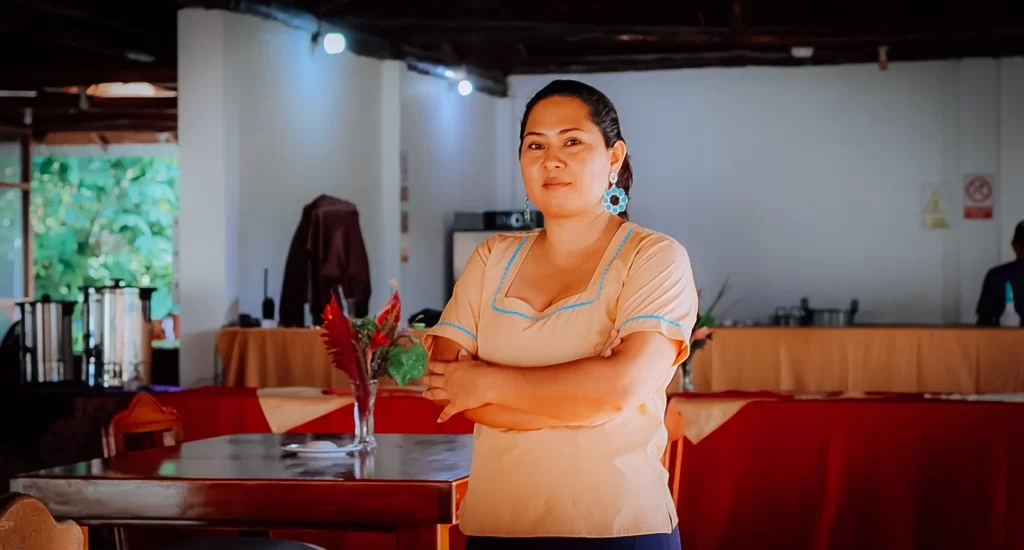
The process of empowering women in Kichwa Añangu has required a profound cultural shift, not only within the community but also in how society as a whole views indigenous women. Over the years, these women have challenged stereotypes and proven that they can be leaders, educators, entrepreneurs, and environmental advocates.
Projects led by women, such as the Kuri Muyu Interpretation Center, which provides traditional crafts workshops and ecological tourism activities, are opening new sources of sustainable income while strengthening the community’s cultural identity. At Kuri Muyu, women are responsible for connecting gastronomic, artisanal, and musical traditions with sustainable tourism. These activities not only generate resources but also allow women to share their ancestral wisdom with the world.
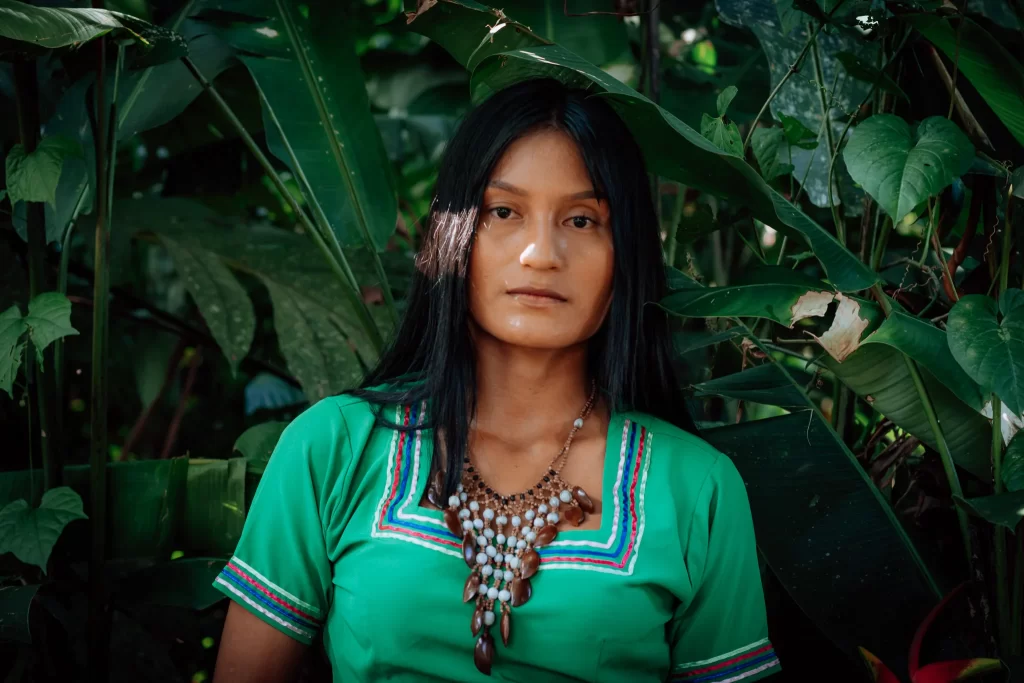
4. Tourism as a Tool for Empowerment
One of the most notable ways in which Kichwa Añangu women are empowering themselves is through community tourism. Women not only act as guides but also organize cultural activities that allow visitors to experience the daily life of the Kichwa community, from preparing traditional dishes to participating in traditional ceremonies.
Sustainable tourism at the Napo Cultural Center has created a space where women are recognized for their wisdom and ability to guide tourists, while also ensuring the conservation of natural resources and respect for traditions. This model demonstrates that empowering women has not only a social impact but also economic and environmental benefits.
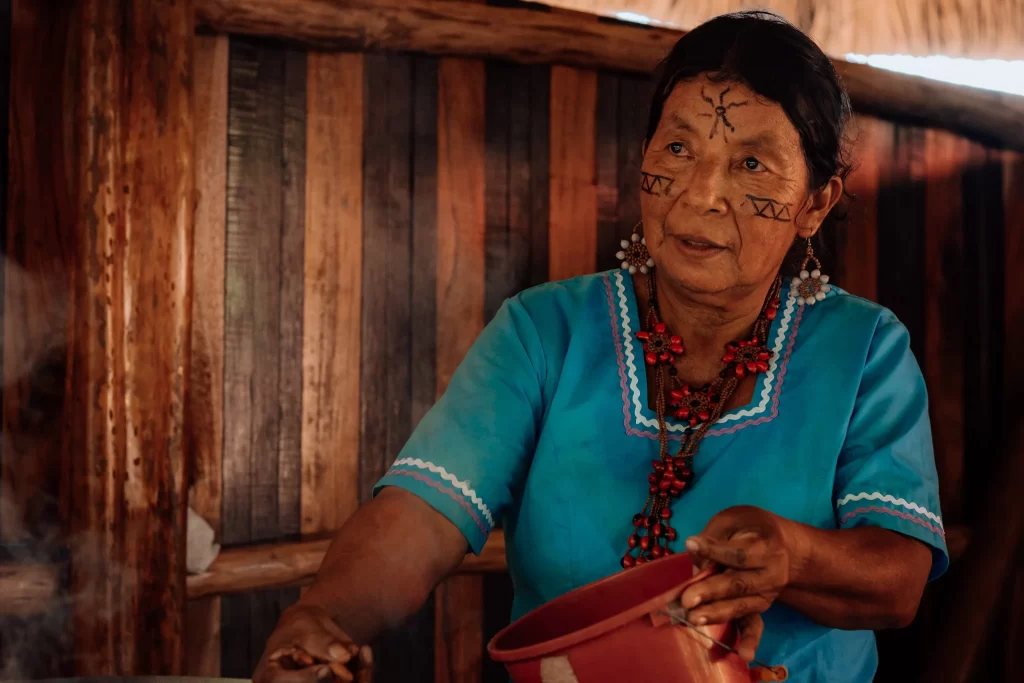
5. Education: The Key to the Future
Education has been one of the cornerstones of empowering Kichwa Añangu women. With the support of resources generated by tourism and training programs, women are accessing new opportunities that were previously unavailable to them. This education not only includes topics related to natural resource management and the creation of sustainable projects but also the strengthening of skills in leadership, economics, law, and other professions.
6. The Strength of Unity: Women Supporting Each Other
An essential aspect of empowerment in Kichwa Añangu is the mutual support among women. Through solidarity networks and support groups, women encourage each other to achieve their goals and help overcome the challenges they face. This support network not only gives them confidence but also reinforces community cohesion, allowing the transformation of the community to be more effective and lasting.
Conclusion:
The empowerment of indigenous women in the Kichwa Añangu community is not only an act of social justice but also a fundamental key to the sustainability and future of the Amazon. Women are taking a crucial role in preserving their culture and the environment, demonstrating that when given the opportunity, they can be the leaders of change.
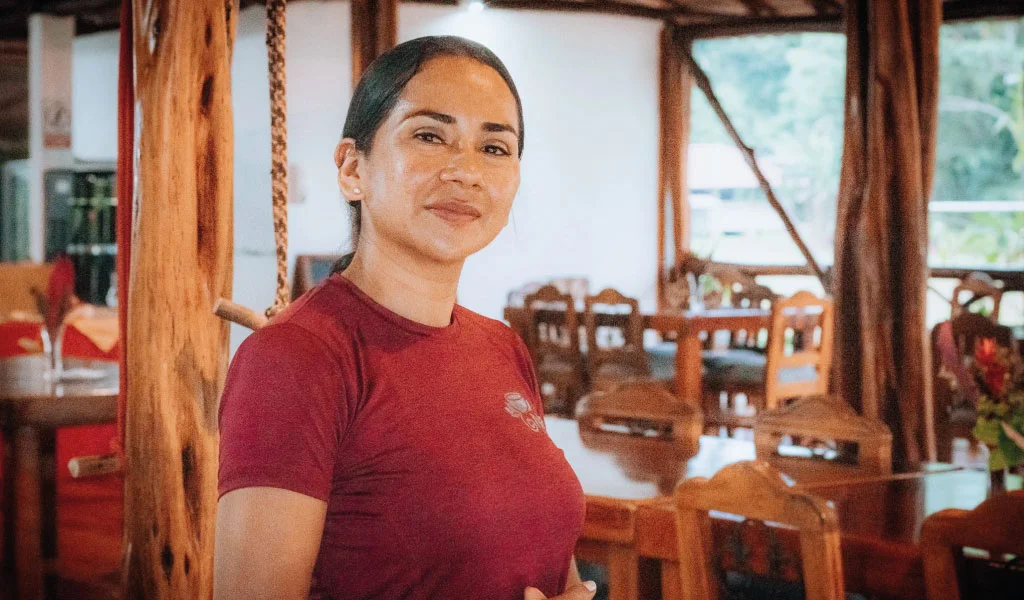
If you wish to learn more about how female empowerment is transforming the Kichwa Añangu community and how you can be part of this inspiring story of change, we invite you to visit the Napo Cultural Center. Book your visit and join the community on their journey toward a fairer and more sustainable future.
